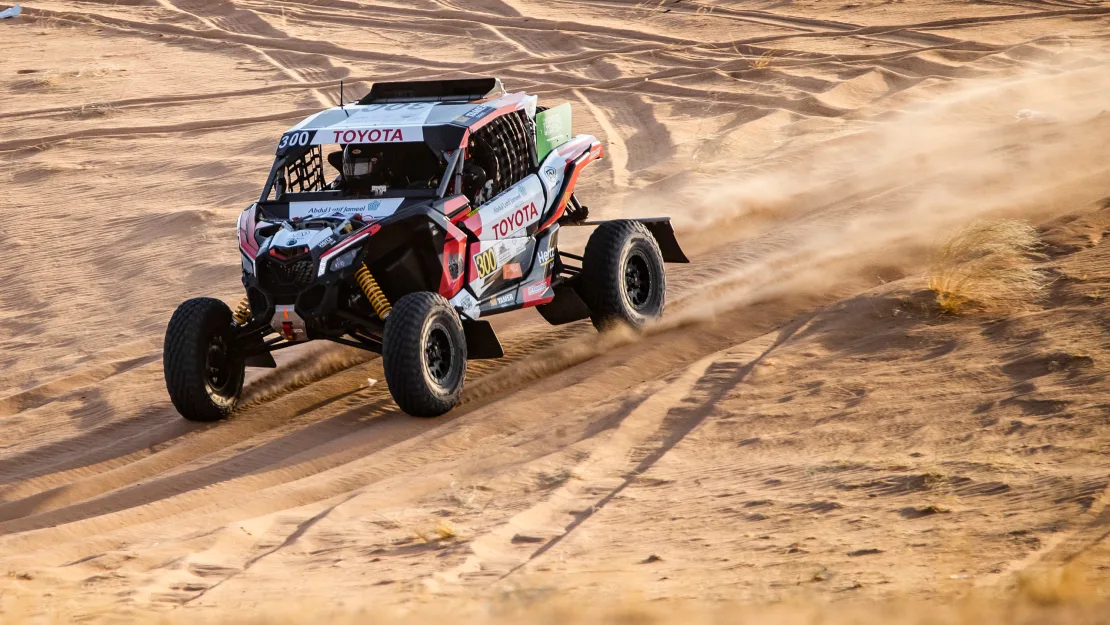Dania Akeel: Conquering the Dakar Rally, Defying Expectations
In the heart of the Arizona desert, Dania Akeel maneuvers her rugged UTV, its engine roaring amidst the vast expanse. Clad in a crash helmet, Akeel’s voice emerges through the intercom, expressing awe at the beauty surrounding her. CNN joins her on a thrilling ride, shedding light on Akeel’s extraordinary journey from Jeddah to the challenging terrain of the Dakar Rally.

At 34, Akeel gears up for her second Dakar Rally, one of the most grueling endurance races globally, and an event that recently found its home in Saudi Arabia. Akeel’s story is remarkable, considering her introduction to racing occurred just over two years ago. Moreover, she hails from a country where women were granted the right to drive on public roads in 2018.
The Dakar Rally, originally the Paris-Dakar Rally, has evolved over the years, now hosted in Saudi Arabia. Akeel’s fascination with motor vehicles dates back to her youth, where a love for movement and the thrill of driving fueled her passion. From go-karts to dirt bikes, her journey unfolded across various modes of transport.
Studying in the UK opened doors for Akeel, allowing her to obtain a driving license at 17, a privilege not available in Saudi Arabia at the time. Her undergraduate years at the University of London’s Royal Holloway College were influenced by the allure of driving. A move to two-wheeled racing marked a shift toward the racing world, and Akeel’s journey gained momentum.
A pivotal moment occurred in Bahrain in 2020 when a motorcycle accident prompted a shift to cross-country racing. Akeel’s recovery coincided with the onset of the Covid pandemic, bringing her back to Jeddah. The allure of rally racing, particularly the Dakar Rally in her homeland, captivated her. Akeel entered the FIA World Cup for Cross Country Bajas, preparing for the diverse terrains the Dakar Rally offers.
Mental preparedness for the unexpected became crucial in Akeel’s Dakar preparations. Acknowledging the sport’s physical demands, she adheres to a strict workout routine, emphasizing the need for proper nutrition and rest. Akeel’s success has attracted sponsors, including major names like Toyota and Can-Am.
As one of the few Saudi women in motorsport, Akeel embraces her role as a trailblazer. With women in Saudi Arabia gaining the right to drive relatively recently, Akeel recognizes the importance of representation. Her journey unfolds as a testament to determination, breaking barriers, and creating pathways for future generations of women in motorsport.
In her debut Dakar Rally, Akeel secured an impressive eighth place in her class, despite a setback due to a turbo issue. The experience served as a learning curve, prompting Akeel to reassess her driving approach. With major sponsors backing her, Akeel remains undeterred, contributing to a growing narrative of women shattering norms in motorsport.
The Dakar Rally, often compared to summer camp by Akeel, is more than a race—it’s a unique experience where the track, the car, and the co-driver become the sole focus. Akeel’s journey continues, not just as a competitor but as a symbol of empowerment, creating ripples of change in the motorsport landscape.
